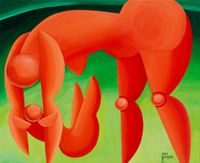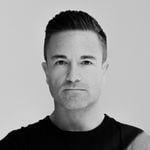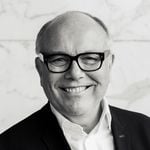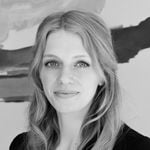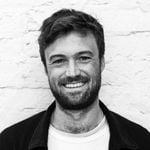As one of representative female artists who addressed a turbulent historical ear in Korea, JUNG Kangja had emerged in Korean art circles through the Korean Young Artists Association Exhibition in 1967.
Read MoreIn the 1960s and the 70s, when the Korean military government and ideologies were in conflict, Jung tried to make voices in society through various formative experiments as a member of 'New Exhibition Coterie' and 'The Fourth Group'. Introducing the real politics into the context of art by using an artist's body and performance was a challenge to the traditional ideas and a resistance on the social system.
However, in 1970, the government started to impose more severe sanctions against all activities using the human body. After her solo exhibition in 1970, Jung moved to Singapore with her family and spent time away from the Korean art scene for over 10 years. The artist's socially critical mind and subjective spirit in the 1960s were connected to formative experiments in the paintings she was devoted to after her return to Korea in 1981. Jung's strong willpower became an impetus to allow her to overcome alienation, and a driving force to make her stand in front of the canvas despite the harsh struggle with cancer.
Jung's work over the last 15 years does a poignant job of displaying her interest in something concrete and realistic, something that had expanded into interest in human beings through abstract, transcendental forms. In short, she wanted to liberate herself through 'imaginations that I stretch in my own way in an unlimited, free space that is bound to nothing.'
Text courtesy Arario Gallery.
